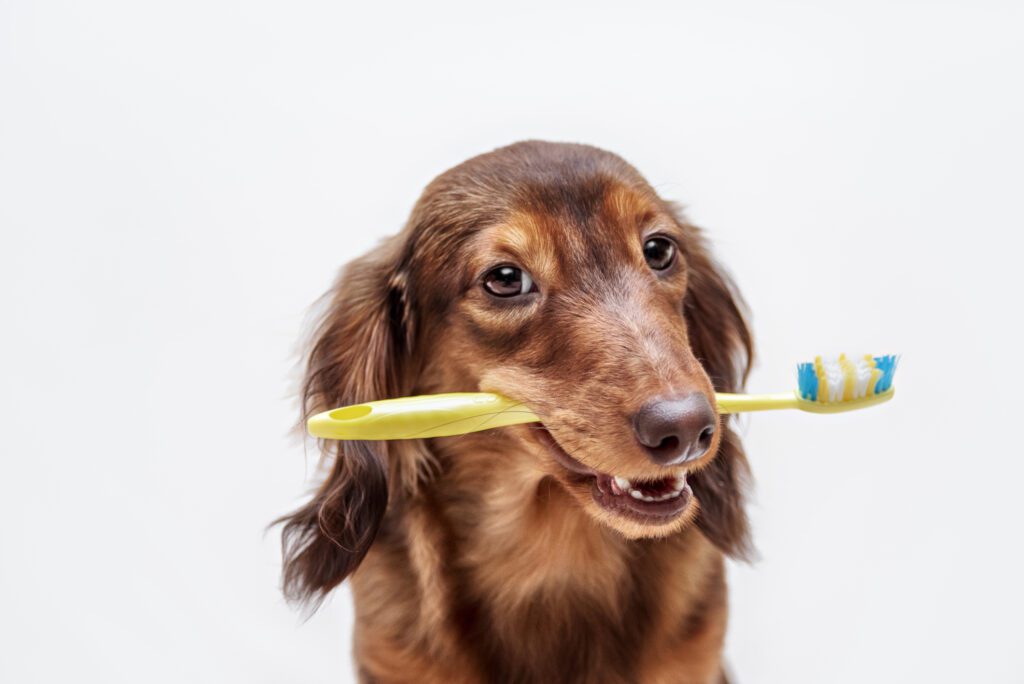Symptoms of Dental Disease in Dogs
Dental disease is one of the most common health problems our beloved canines face. It begins with the buildup of tartar and plaque, which can lead to inflammation, also known as gingivitis, and progress into periodontal disease, causing damage to the teeth and gums.

Causes of Dental Disease in Dogs
A variety of factors can contribute to dental disease in dogs. Diet, age, breed, and oral hygiene practices all play significant roles. Dogs who eat mainly soft or canned foods, for example, may be more prone to plaque buildup than those on a kibble diet.
Types of Dental Diseases in Dogs
Dental disease in dogs is not limited to tooth decay. Gingivitis, periodontal disease, tooth resorption, and oral tumors are among the conditions that may affect your dog’s oral health.
Symptoms of Dental Disease in Dogs
Early detection of dental disease can make a significant difference in your dog’s oral health, longevity, and overall well-being. Knowing the symptoms can help you identify potential issues and seek timely veterinary attention.
Physical Symptoms
Symptoms can range from bad breath, a clear sign of oral health issues, to visible tartar and plaque buildup. Some dogs may show signs of pain or discomfort when eating or chewing, while others may have loose or missing teeth.
Behavioral Changes
Dental disease can also affect your dog’s behavior. Dogs suffering from oral discomfort might lose interest in their toys or show decreased appetite. In some cases, they may even exhibit signs of aggression or increased irritability due to the pain.
Importance of Regular Dental Check-ups
Routine dental check-ups play a critical role in maintaining your pet’s oral health and catching dental disease in its early stages.
Preventing Canine Dental Disease
While home oral hygiene can help prevent dental disease to some extent, professional cleanings and check-ups are essential for thorough care. These visits can also offer opportunities for veterinarians to provide guidance on proper home care.
Diagnostic Procedures and Treatments
During a dental check-up, your veterinarian might use a variety of tools, like dental radiographs, to get a clear picture of your dog’s oral health. If any issues are detected, a range of treatments may be recommended, including professional cleanings, tooth extractions, or more specialized treatments.
Taking the Next Step: Schedule Your Dog’s Dental Check-up Today
If you’ve noticed any signs of dental disease in your dog or it’s been a while since their last dental check-up, don’t wait to seek professional help. Timely intervention can drastically improve your dog’s oral health and overall quality of life.
For Dunedin, FL, residents, Paws and Claws Animal Medical Center is here to assist with all your pet’s oral health needs. Call us today at (727) 953-6588 to schedule your dog’s dental check-up. Your pet’s health is our priority. Remember, it’s always better to prevent than to treat. Regular check-ups can keep your dog’s pearly whites healthy and their tail wagging happily.
